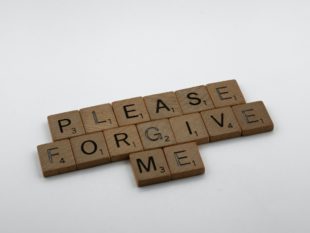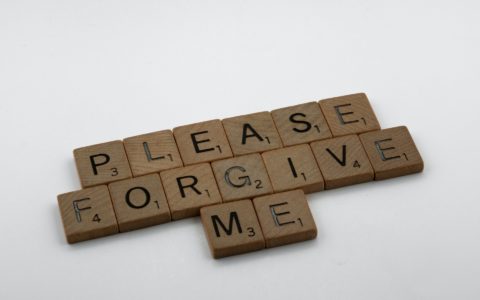The Harmful Effects of Unforgiveness
Christian Counselor Spokane
🎧 Listen to this article
Sometimes, one of the hardest things to do is to let go. If someone harms you or your loved ones or otherwise does something outrageous, the last thing we want to do is to forgive them. Forgiveness seems like a good idea in theory, but when the reality of it hits us, often we find ourselves being less forgiving than we’d imagined or hoped.
 The words that Jesus spoke, that we should love our enemies and pray for those who persecute us, are challenging to the point of being unrealistic. However, we see in the life of Jesus (as he was being crucified), in the life of Stephen (as he was being stoned to death), and in the lives of many saints across the centuries a willingness to do the unthinkable – praying for the very people who mean them harm.
The words that Jesus spoke, that we should love our enemies and pray for those who persecute us, are challenging to the point of being unrealistic. However, we see in the life of Jesus (as he was being crucified), in the life of Stephen (as he was being stoned to death), and in the lives of many saints across the centuries a willingness to do the unthinkable – praying for the very people who mean them harm.
It raises the question of how, in our own lives, we should deal with unforgiveness and the feelings of anger or resentment that well up inside us because of it. First, we should address some of the more common objections that are often raised against the idea of forgiving others. Sometimes, we struggle to forgive people because we think or feel that:
- They’ll think they got off easy and do it again
- They hurt me, so we can’t forgive them
- What they did was horrible, and they shouldn’t be let off the hook. It would be unjust to forgive them
- They don’t deserve it; they haven’t even repented!
- They don’t seem to care one way or another if they’re forgiven
- I was hurt too deeply, and I just can’t let it go
All these thoughts and feelings are valid and legitimate. The hurt we’ve experienced is real, and people often just don’t understand the gravity of what they’ve done. And yes, what they’ve done is probably horrible, and forgiving them might be taken as sending the wrong signal.
Having said that, it may help to gain a clearer understanding of what forgiveness is and isn’t, the dynamics of what is happening when you forgive someone, and what the lack of forgiveness does to you emotionally, physically, mentally, and spiritually.
The Nature of Forgiveness: What it Is and Isn’t
Of course, in the beginning, we mentioned how we struggle to forgive and let things go. It’s important to be clear about what forgiveness is and isn’t. Forgiving someone is not the same thing as ignoring something evil that a person has done. It’s not excusing it either. Instead, it’s seeing the horrible thing that has been done, shorn of all excuses and extenuating circumstances, and choosing not to hold it against that person or get even with them.
 Letting go of the desire to get revenge or get even when we forgive someone doesn’t mean that there will be no consequences for people’s actions. It also doesn’t mean that you should trust that person again. You’re simply letting go of the desire to exact revenge.
Letting go of the desire to get revenge or get even when we forgive someone doesn’t mean that there will be no consequences for people’s actions. It also doesn’t mean that you should trust that person again. You’re simply letting go of the desire to exact revenge.
This is an important distinction to make in those circumstances when a crime has been committed. The law can and should be allowed to take its course; it’s a different question of how you feel about the person, whether you’ve personally forgiven them.
So, forgiveness isn’t pretending that what was done wasn’t evil. It’s seeing and naming it as evil (otherwise, there would be nothing to forgive) and choosing to relinquish the right or desire to retaliate. You’re choosing to not nurse the negative feelings you have against that person and giving up whatever negative real estate they may have in your heart and mind. It’s not about them, but about you and your freedom.
What Does Unforgiveness Do to You?
On the other hand, what does deciding to hold on to those negative thoughts and feelings about the person do to you? Lack of forgiveness lies behind the breakdown of many relationships. unforgiveness breaks relationships, be they between neighbors, colleagues, family members, friends, spouses, and much more.
 The resentment that builds due to an unforgiven offense begins to choke effective communication, it stifles goodwill and tints every statement the other person makes until you can’t stand being in the same room with them, let alone the same marriage or family.
The resentment that builds due to an unforgiven offense begins to choke effective communication, it stifles goodwill and tints every statement the other person makes until you can’t stand being in the same room with them, let alone the same marriage or family.
Unforgiveness can even distort our duty to love God and our neighbors as ourselves. The story of Jonah in the Bible is a good example of what unforgiveness does in a person’s life. Sent to share God’s message with the Ninevites, Jonah ran away in the opposite direction. It’s not that he feared the people of Nineveh, rather, the reason he didn’t want to go there comes out at the end of the book.
Forget the kid’s Bible story version of this. Jonah was angry because he “knew that [God] was a gracious and compassionate God, slow to anger and abounding in love, a God who relents from sending calamity” (Jonah 4:2). The real reason he’d run away is that he knew that if the people of Nineveh turned from their sins, God would forgive them.
Jonah didn’t want that. Instead, he wanted God to destroy them, and that’s why he ran away the first time. Make no mistake – the people of Nineveh were genuinely evil, and Jonah didn’t want to forgive them, nor did he want God to forgive them either. And when God said he would forgive the Ninevites, Jonah said, “I’m so angry I wish I were dead” (Jonah 4:9).
Unforgiveness and the resentment it generates take away from your well-being, joy, and peace. Research has shown that forgiveness is linked to fewer physical health symptoms such as hypertension and heart health, and lower mortality rates, as well as with mental health outcomes such as reduced anxiety, major psychiatric disorders, and depression. The flipside of that is that unforgiveness is likely killing you.
 Nelson Mandela is a world-famous icon for peace. He fought for freedom for the black majority in South Africa and was imprisoned by the brutal apartheid regime for 27 years for his activism. He spent the prime years of his life in jail, missing the opportunity to see his children growing, and so much more. He was an old man by the time he left prison. He chose to forgive his former jailers, letting go of the feelings of bitterness that one would naturally expect.
Nelson Mandela is a world-famous icon for peace. He fought for freedom for the black majority in South Africa and was imprisoned by the brutal apartheid regime for 27 years for his activism. He spent the prime years of his life in jail, missing the opportunity to see his children growing, and so much more. He was an old man by the time he left prison. He chose to forgive his former jailers, letting go of the feelings of bitterness that one would naturally expect.
Instead of exacting revenge, he chose to work with the former government and the white minority to build a new and democratic country. Speaking about holding on to feelings of bitterness against the old regime, he said, “Having resentment against someone is like drinking poison and thinking it will kill your enemy”.
The Choice is Ours
Like most things, the choice is in our hands whether we will draw from God’s life and example, releasing ourselves from the anger and hurt that consume us. God calls us to surrender to his healing hand. Holding on to unforgiveness won’t heal you; instead, it will poison you, your joy, and your relationships.
In Romans 12, Paul writes to the Christians in Rome that they should surrender themselves to God’s unerring justice: “Dear friends, never take revenge. Leave that to the righteous anger of God. For the Scriptures say, ‘I will take revenge; I will pay them back’, says the Lord” (Romans 12:19). Instead of holding onto the idea of vengeance, we are to let go and entrust the outcome to God’s justice.
Our vengeance won’t repair the damage, and it often makes things worse. This is a huge step of faith, and it requires us to believe that God is good and will do what is right, and at the right time.
Our calling is for us to live through the power of the Spirit and enjoy the glorious freedom given to us as God’s children. “It is for freedom that Christ has set us free,” Paul writes in his letter to the Galatians.
That freedom includes freedom from sin, but also freedom from all that would bind us and diminish our joy and peace – anger, resentment, unforgiveness, “hatred, discord, jealousy, fits of rage, selfish ambition, dissensions, factions, and envy.” (Galatians 5:20-21).
“Quote”, Courtesy of Hello I’m Nik, Unsplash.com, CC0 License; “Please Forgive Me”, Courtesy of Brett Jordan, Unsplash.com, CC0 License; “Forgiveness”, Courtesy of Felix Koutchinski, Unsplash.com, CC0 License; “Forgiveness”, Courtesy of Gus Moretta, Unsplash.com, CC0 License





